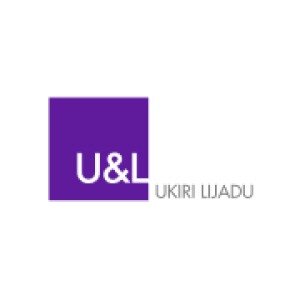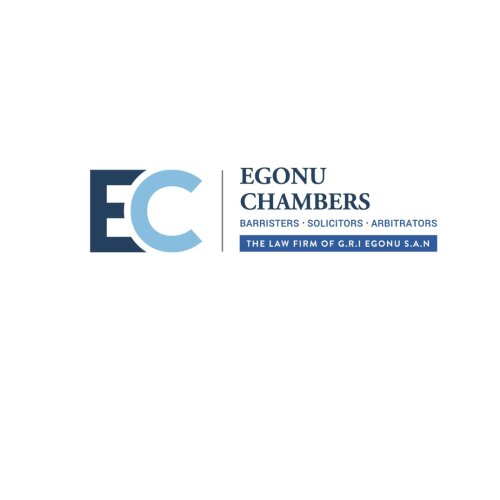Best New Business Formation Lawyers in Maitama
Share your needs with us, get contacted by law firms.
Free. Takes 2 min.
List of the best lawyers in Maitama, Nigeria
Nigeria New Business Formation Legal Questions answered by Lawyers
Browse our 2 legal questions about New Business Formation in Nigeria and read the lawyer answers, or ask your own questions for free.
- Timeline, Requirements, and Costs for Company Registration with the CAC
- How long will it take to get my company registered with the CAC, and what are the necessary requirements and costs?
-
Lawyer answer by GAVEL & GREY LEGAL PRACTITIONERS
The duration takes between 7-28 days. And as for requirement, it varies depending on the type of company you seek to register. the fees is usually determined by the share capital you seek to register your company with. for more...
Read full answer - I want to start upa disatch rider company i. Enugu. Courier a d logistics. Company
- What are the necessary law requirement and licensing to set up a dispatch rider business within Rnugu State
-
Lawyer answer by Highlaw Chambers
To establish a dispatch rider business in Enugu State, several key legal requirements must be met. Firstly, you need to register your business with the Corporate Affairs Commission (CAC) and obtain a Business Name Registration. Additionally, you will need to...
Read full answer
About New Business Formation Law in Maitama, Nigeria
Maitama is a district within the Federal Capital Territory (FCT) of Abuja, Nigeria, known for its affluent residential and business environments. New business formation in Maitama follows the legal framework established by Nigeria’s Companies and Allied Matters Act (CAMA) 2020, administered by the Corporate Affairs Commission (CAC). This law governs the incorporation and management of companies, partnerships, and business names in Nigeria. The process involves choosing a business structure, registering the business with the relevant authorities, and complying with specific regulations to operate legally.
Why You May Need a Lawyer
While it is possible to form a new business without legal assistance, there are several situations where hiring a lawyer can be advantageous:
- Understanding the legal requirements for the specific type of business entity you wish to establish, such as a limited liability company (LLC), partnership, or sole proprietorship.
- Ensuring compliance with local regulations and industry-specific licenses or permits.
- Drafting and reviewing incorporation documents, shareholder agreements, and other legal contracts.
- Navigating the complexities of tax obligations and employment laws.
- Resolving disputes or legal challenges that may arise during the formation process.
Local Laws Overview
The key aspects of local laws that are crucial for new business formation in Maitama include:
- Business Registration: The CAC is responsible for business registrations, including the incorporation of companies, partnerships, and registration of business names.
- Business Entities: Understanding the differences between business entities like private limited companies, public companies, partnerships, and sole traders is essential in choosing the right structure.
- Taxation: Businesses must comply with federal and FCT tax requirements, including the Companies Income Tax, Value Added Tax, and other levies.
- Employment Laws: Adhering to labor laws relating to employee rights, compensations, and workplace conditions is necessary.
- Industry Regulations: Some sectors may have additional licensing and regulatory requirements.
Frequently Asked Questions
What are the first steps to start a business in Maitama?
Initially, decide on a business idea and structure, conduct a name search with the CAC, register the business, and secure any necessary licenses or permits.
How long does it take to register a business?
Business registration with the CAC can take a few days to several weeks, depending on the completeness of documentation and workload at the commission.
What types of businesses can be registered?
You can register a private or public limited company, partnerships, sole proprietorships, NGOs, and incorporated trustees.
Do I need a local director for my company?
Yes, the CAMA requires that Nigerian companies have at least one director who is a resident in Nigeria.
What is the role of the Corporate Affairs Commission?
The CAC is responsible for regulating and overseeing the formation, registration, and operation of businesses in Nigeria.
Are there specific requirements for foreign investors?
Foreign investors need to obtain a Business Permit and Expatriate Quota from the Ministry of Interior and must register with the Nigerian Investment Promotion Commission (NIPC).
What taxes are applicable to new businesses?
Businesses may be subject to Companies Income Tax, Value Added Tax, and other local taxes, depending on their operations.
What documents are required for business registration?
Typically, you need a completed registration form, a memorandum and articles of association, identification of directors and shareholders, and proof of payment of necessary fees.
Can a business name be reserved before registration?
Yes, you can apply for a business name reservation with the CAC to ensure availability before registration.
What legal protections are available for business ideas?
Intellectual property rights like patents, trademarks, and copyrights can protect business inventions and brand identity.
Additional Resources
The following resources can be helpful for those seeking further information on new business formation in Maitama:
- Corporate Affairs Commission (CAC): The primary government body for business registration and regulation in Nigeria.
- Nigerian Investment Promotion Commission (NIPC): Provides guidance for foreign investors looking to start businesses in Nigeria.
- Federal Inland Revenue Service (FIRS): Offers information on taxation and compliance for businesses.
- National Office for Technology Acquisition and Promotion (NOTAP): Assists with technology transfer agreements and intellectual property rights.
Next Steps
If you require legal assistance in forming a new business, consider the following steps:
- Research and contact local law firms or legal consultants specializing in business law.
- Schedule consultations to discuss your business plan and understand the legal services available.
- Consider joining local business networking groups that can provide referrals and peer support.
- Visit governmental bodies or engage with professional organizations for up-to-date information and assistance.
Taking informed steps with the guidance of a legal professional can ensure a smoother process in establishing your new business in Maitama, Nigeria.
Lawzana helps you find the best lawyers and law firms in Maitama through a curated and pre-screened list of qualified legal professionals. Our platform offers rankings and detailed profiles of attorneys and law firms, allowing you to compare based on practice areas, including New Business Formation, experience, and client feedback.
Each profile includes a description of the firm's areas of practice, client reviews, team members and partners, year of establishment, spoken languages, office locations, contact information, social media presence, and any published articles or resources. Most firms on our platform speak English and are experienced in both local and international legal matters.
Get a quote from top-rated law firms in Maitama, Nigeria — quickly, securely, and without unnecessary hassle.
Disclaimer:
The information provided on this page is for general informational purposes only and does not constitute legal advice. While we strive to ensure the accuracy and relevance of the content, legal information may change over time, and interpretations of the law can vary. You should always consult with a qualified legal professional for advice specific to your situation.
We disclaim all liability for actions taken or not taken based on the content of this page. If you believe any information is incorrect or outdated, please contact us, and we will review and update it where appropriate.









